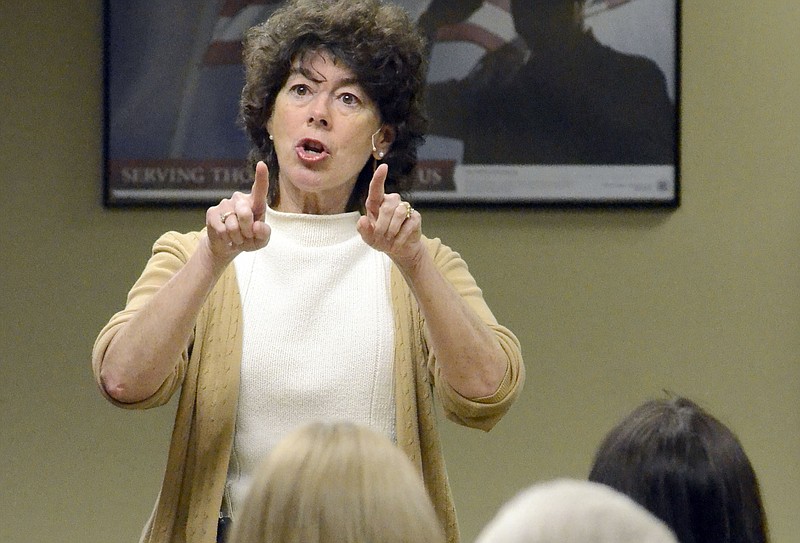Deborah Grassman has spent decades helping veterans through the last stages of their lives.
She's in Chattanooga this week to share what she's learned with hospice caretakers, veterans and their families.
The most important lesson? Listening.
Often those who are dying speak in metaphor, using symbols to guide them. Veterans have their own speech, unique needs and concerns, she said.
"We want to learn how to speak their language," she told a group of about 40 caretakers Tuesday, "not force them back out to speak ours."
Grassman recounted heart-wrenching stories that veterans facing death have told her, stories of Post Traumatic Stress Disorder symptoms surfacing in 90-year-old World War II veterans, stories of Vietnam veterans seeing enemy soldiers hiding beneath their beds, stories of men visibly shaking as they recall the enemies they killed.
These haunting events frequently form barriers to accepting death, she said. Many combat veterans have a dire need to forgive and seek forgiveness for killing, for not killing, for surviving war.
The very traits that military training instills to keep veterans alive in combat -- stoicism, discipline, resiliency -- become obstacles to reconciling painful experiences when they face death, Grassman said.
But recognizing what a veteran might have to work through as death nears can help both the veteran and their family.
"At the end of life, sometimes things surface that they have kept hidden previously," she said.
Some of Grassman's focus in her talks this week are to help veterans, their families and caregivers "reckon or come to grips with" those kinds of issues.
Grassman has worked for the U.S. Department of Veterans Affairs for 29 years and served as director of the department's hospice program for 18 years.
She spoke at the Southeastern Tennessee Veterans Coalition conference in January 2011, but Hospice of Chattanooga Foundation Executive Director Meg Beene said there wasn't a chance then for her to train hospice staff. So they brought her back.
The foundation just completed a three-year grant funded by the National Hospice and Palliative Care Organization to help community hospices connect with VA programs for veterans. Grassman's sessions this week continue what the grant money started, Beene said.
One social worker who has cared for both veterans and non-veterans in hospice said Tuesday that hearing Grassman's experiences prompted her to look more closely at her own exposure to veterans' needs.
"This was a reminder for me," Myra Gaddis told Grassman. "Some of these things, it's not our place to take that away. Sometimes you need to just shut up and listen."
